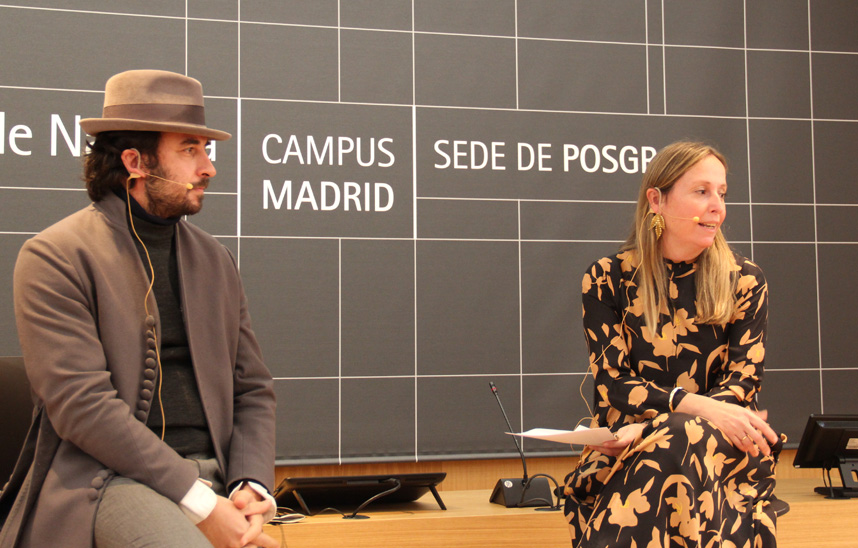Cultural Appropriation and Intellectual Property: The Limits of Inspiration
Enjoy the dialogue between representatives of creative industries - music, literature, fashion - and specialists in the enforcement of intellectual property rights.

10 | 12 | 2021
On Thursday, December 2, the ISEM headquarters hosted a debate on "Cultural Appropriation and Intellectual Property: The limits of inspiration". This meeting is part of the "Observatory of Humanities and Technology", of which the University of Navarra is a member, together with the universities of Extremadura, the Polytechnic of Valencia and the UNED. This is the second time that ISEM organizes a meeting of this kind, since a few months ago a first debate on "Ways to protect creativity" took place.
The moderators of the event were Teresa Sádaba, director of ISEM, andJosé Manuel Gómez Bravo, expert in Intellectual Property and Creative, Cultural and Technological Industries.
Gómez Bravo addressed the issue of the crossing of cultures and defended that all great creations have started from something previous, although that has some limits: "Cervantes cannot be understood without all the previous novels of knights. Rodin's kiss is inspired by Dante, the Toledo School of Translators... But the imagination of the original creators must be protected.
Antonio María Ávila, director of the Publishers and Booksellers Guild, explained that it was the French Revolution that introduced the idea that intellectual property is a human right, "as a way of recognizing the work of each person. Since then, almost all the advances in our society have been possible thanks to the existence of intellectual property". A line also defended by Lucía Pastor, Cedro's anti-piracy director, in addition to the fact that "it is necessary to distinguish from a legal point of view what is an authorized adaptation, what is inspiration and what is a legitimate loan".
On the part of the creators, Paul García Oteyza is a benchmark when it comes to combining tradition and the avant-garde. His brand vindicates traditional Spanish tailoring. "The search for sources is something inherent to man," explained the creator, who is discovering new codes of masculine elegance in the most classic garments.
"Fifteen days ago I was thinking the same as Paul, but I've just been to Mexico and I've come back with a different perspective," said journalist Charo Izquierdo. The Original Fair, organized to connect Mexican artisans with designers, has turned her approach upside down. "Inspiration is important, but all cultures deserve the respect and economic benefit that comes with its use".
Finally, the guitarist and composer José Miguel Carmona, from the group Ketama, spoke about fusion and claimed the importance of distinguishing original creations from those that give rise to other genres: "I love the mixture but I think it is important to call each thing by its name. Flamenco is not just anything. Flamenco defends art more than interest and that sometimes is a problem to defend what is ours".
Carmona closed with a phrase that is perfect for this debate: "Paco de Lucia used to say that all musicians steal, because there are 7 notes and a lot of music. But the real artist is the one who doesn't realize it".
